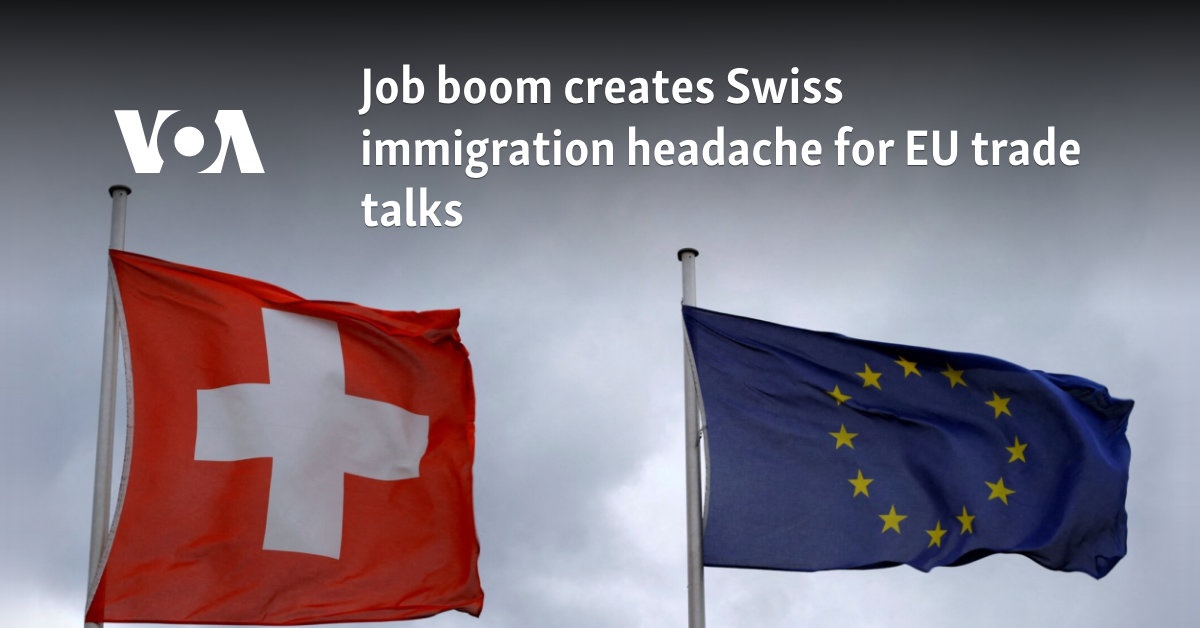Despite holdups, von der Leyen expected to unveil Commission jobs Tuesday

European Commission President Ursula von der Leyen is expected to press on with unveiling her plan to distribute jobs among her next cohort of commissioners on Tuesday (17 September), despite a hold-up preventing the formal nomination of one candidate.
Von der Leyen was originally due to present the plan to the leaders of the European Parliament’s political groups on 11 September. She postponed the presentation to Tuesday to allow time for the Slovenian parliament’s EU affairs committee to meet on 13 September to give its opinion on the country’s candidate for commissioner, Marta Kos.
That meeting still has not been held, but as of Monday (16 September) evening, von der Leyen is nevertheless still due to give her presentation as planned the following morning.
Even though the Slovenian parliamentary committee’s opinion is advisory and non-binding, Ljubljana cannot formally submit Kos’s nomination papers to the EU without it. Slovenian law requires the committee to give its opinion by 24 September.
Meanwhile, the European Parliament, which is responsible for scrutinising and confirming each country’s candidate, will not formally begin its deliberations until it has received every candidate’s paperwork, in line with its own rules of procedure.
Consequently, even if von der Leyen does present her plan on Tuesday – which European Parliament sources say she can – the holdup in Slovenia still puts the parliamentary timeline under pressure.
Slovenia’s liberal Prime Minister Robert Golob named Kos as his country’s candidate on 9 September. Golob’s previous candidate, Tomaž Vesel, withdrew on 6 September under pressure from von der Leyen, who wants more female nominees.
Similarly, French commissioner Thierry Breton, whom Paris had put forward for a second term, withdrew on Monday (16 September). Breton highlighted differences with von der Leyen in his resignation letter, just as Vesel did when announcing his own withdrawal.
The same day, French President Emmanuel Macron announced another male candidate to replace Breton: Stéphane Séjourné, French minister for Europe and foreign affairs.
Breton has a history of clashing with von der Leyen. For example, in March, he suggested that her own European People’s Party “does not seem to believe in” her. Then in August he did not consult von der Leyen before writing a letter to X owner Elon Musk, warning him over a livestreamed conversation with United States presidential candidate Donald Trump.
Séjourné & Fitto both covet economic brief
Séjourné, meanwhile, is set to take on a portfolio covering the economy, monetary policy, financial services, and the capital markets union – clashing with Italy’s initial portfolio ambitions.
According to the the Italian edition of online magazine HuffPost, Italy’s candidate is expected to receive the cohesion portfolio, which concerns EU payments to the bloc’s less wealthy regions. Rome’s nominee, Raffaele Fitto, had been in line for the economy portfolio, according to German newspaper Die Welt. Nevertheless, Fitto is still expected to be an executive vice president in the new Commission.
Currently, Italy’s Paolo Gentiloni serves as the European commissioner for economy.
If von der Leyen does present her plan tomorrow, it would be the second time she has done so without a complete set of candidates. In 2019, Boris Johnson, then prime minister of Britain, decided not to nominate a British commissioner. The country left the EU on 31 January 2020, just two months after the Commission took office. Nevertheless, the Commission took legal action against Britain for failing to provide a candidate.
[Edited by Owen Morgan]
Read more with Euractiv
Related
EU chief launches a ‘personal’ initiative to help Europe’s troubled…
EU chief Ursula von der Leyen announced Wednesday she will personally lead a new initiative to help Europe’s troubled car industry steer through “a deep and
Lotus announces new European CEO in wake of UK job…
That may not be the case short term, however. “That really depends on the macroeconomic conditions that we’re competing with over the next two years – tha
European Auto Industry Faces Major Job Cuts
Across Europe, the automotive industry is facing turbulent waters, with various manufacturers announcing sweeping job cuts to cope with changing ma
Job boom creates Swiss immigration headache for EU trade talks
ZURICH — Switzerland is scrambling to keep a lid on immigration from its top trade partner, the European Union, as a jobs boom powered by the country's lo












